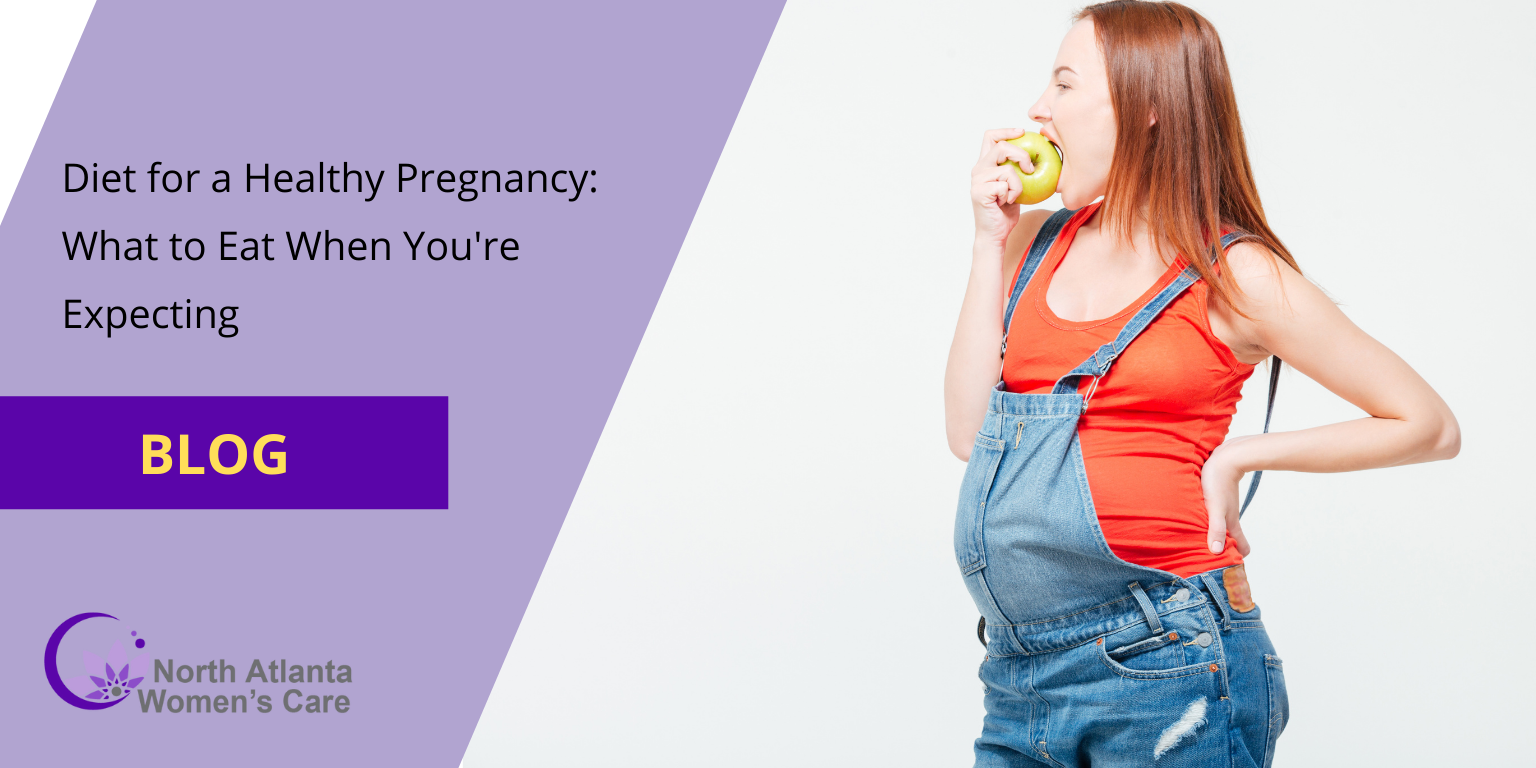Diet for a Healthy Pregnancy: What to Eat When You're Expecting

The importance of eating healthy while you are pregnant can never be overstated. Maintaining a nutritious diet through all trimesters is essential for your baby's brain development and healthy birth weight. A well-balanced pregnancy diet helps reduce the risks of many congenital disabilities while keeping unpleasant pregnancy symptoms such as morning sickness and fatigue away.
As an expecting mom, you need to satisfy your nutritional needs by eating a variety of food from different food groups. A well-balanced pregnancy diet will include:- Proteins
- Calcium
- Fresh fruits and leafy vegetables
- Iron-rich food
- Folic acid
- Whole grains
- Vitamin C
- Limited intake of fat
Experts recommend gaining 25 to 30 pounds if you have a normal weight before pregnancy. However, this range will vary if you were obese or underweight before becoming pregnant.
What Should I Eat During Pregnancy?
Here's a list of some nutritious food that you can add to your diet for a safe and healthy pregnancy:
1. Lean meat and proteins
Low-fat beef, pork, and chicken are great sources of high-quality protein. These are also rich in choline, iron, and other types of Vitamin B, which your body needs in higher amounts during pregnancy. Low levels of iron can result in anemia (deficiency of red blood cells and lower birth weight and other complications. Lean meat helps cover iron needs that might not be met with vegan meals alone.
2. Avocados
Avocados are high in healthy fats and have numerous scientifically proven health benefits. Often referred to as a superfood, avocados come in multiple shapes and colors. These highly nutritious fruits contain 20 different vitamins and minerals, including vitamin K, potassium, folate, vitamin E, and more. These are not only good for the brain, skin, and tissue development of your baby but are also effective in relieving leg cramps, which are common in pregnancy.
3. Diary products
Dairy products like cheese, milk, and yogurt are rich in calcium and contain two types of high-quality protein: whey and casein, both of which are ideal for muscle growth. Yogurt, especially Greek yogurt, contains probiotic bacteria that help restore your gut health. Make sure to buy pasteurized dairy products as pasteurization kills any harmful bacteria, such as listeria.
4. Green leafy vegetables
Dark, leafy greens such as kale, spinach, and broccoli are packed with vitamins and minerals. These are also low in fat and cholesterol and a great source of fiber (that helps combat constipation). Eating vegetables has also been linked to reduced risks of low birth weights, giving you more reason to indulge in these green delights!
5. Water
ater is an essential part of our human bodies at all stages of life. During pregnancy, your blood volume increases by 45%, channeling nutrition and hydration to your baby. Pregnant women are advised to drink at least ten 8-ounce glasses of water (2.3 liters) every day. You can also fulfill your hydration needs through fruits, vegetables, coffee, and tea. Increasing your water intake will also ease constipation and reduce UTI risks (urinary tract infections) that are common during pregnancy.
What Should I Avoid Eating During Pregnancy?
The following are some of the food items that you should avoid during pregnancy:
- Raw eggs- While cooked eggs are a great source of choline( a vital nutrient), raw eggs could contain salmonella bacteria. They should be avoided even when present in mayonnaise, Hollandaise sauces, or homemade Caeser salad dressings.
- Fish with high levels of mercury- These include king mackerel, swordfish, and tilefish. Canned fish should be consumed sparingly.
- Soft cheese- Stay clear of imported soft cheeses like Camembert, Gorgonzola, Roquefort and Brie, which may contain listeria bacteria.
- Uncooked or Undercooked meat- Avoid uncooked seafood such as mussels, oysters, and sushi, as well as undercooked meat, because they can be breeding grounds for salmonella bacteria.
- Unpasteurized dairy– This may contain listeria bacteria and should be avoided.
Pregnancy is a beautiful time in your life, but it comes with added responsibility. Your baby is counting on you for their nutrition and future well-being. Incorporate these healthy food items into your pregnancy diet while steering clear of the harmful ones.
For more expert tips and care for a healthy pregnancy, schedule an appointment with us at North Atlanta Women's Care today!
Comments are closed

